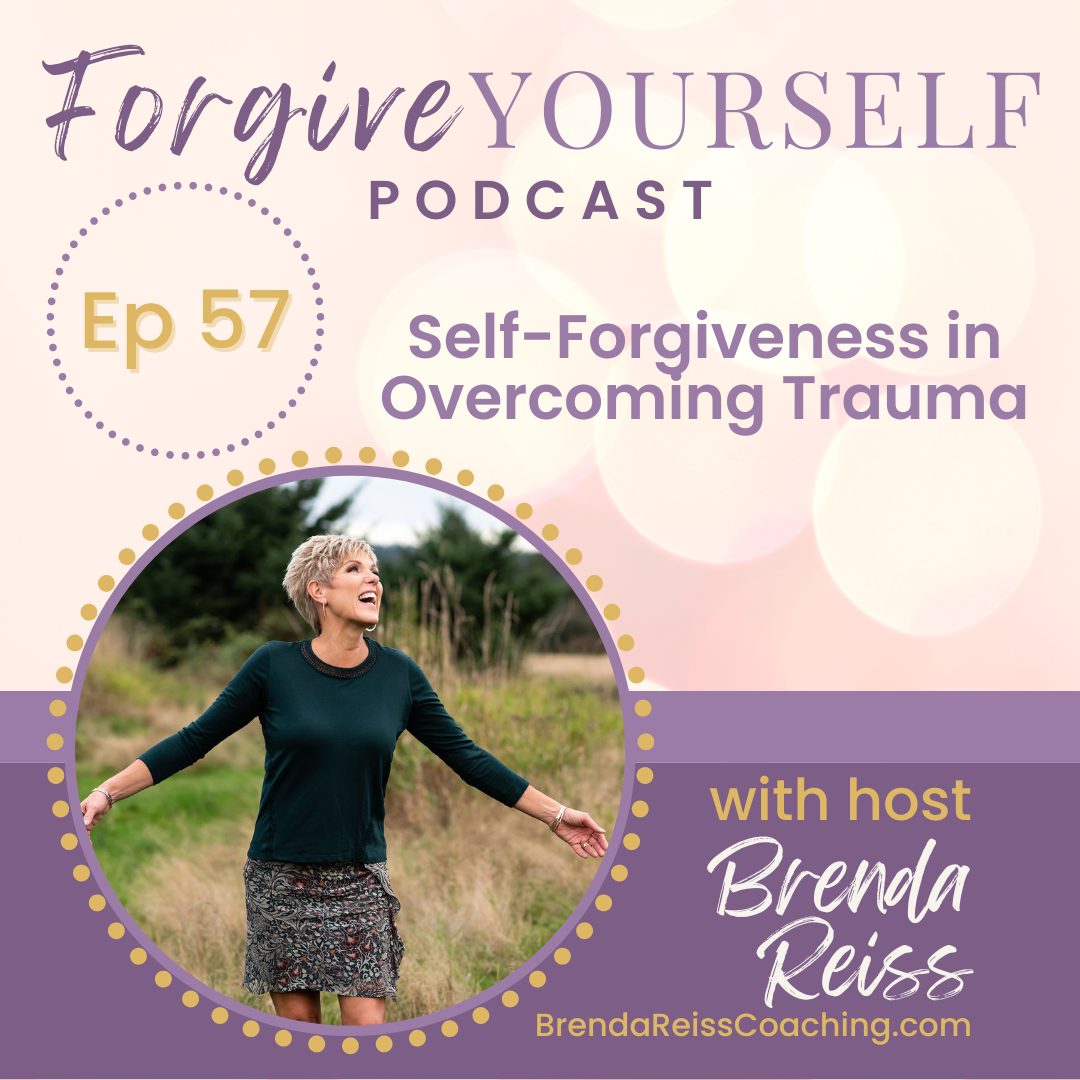We weren’t created to live in the shame and guilt of traumatic experiences. Self-forgiveness allows us to move forward with greater compassion, resilience and peace.
In this powerful episode, I delve into the critical topic of self-forgiveness and its role in trauma recovery. I begin by acknowledging that trauma changes us profoundly – whether it’s a betrayal, a significant loss, or any event that overwhelms our capabilities. I emphasize that while we often focus on external healing, an equally important part of the recovery process comes from within ourselves.
Drawing from recent studies, I discuss the widespread impact of collective trauma, particularly in the wake of the COVID-19 pandemic. I cite the American Psychological Association’s “Stress in America 2023” report, which reveals that despite the official end of the public health emergency, many Americans are still grappling with the psychological impacts of this collective trauma. This extends beyond the pandemic to include global conflicts, racial injustice, inflation, and climate-related disasters.
One of the most powerful tools for healing is self-forgiveness, which allows us to move forward in our healing journey.
I break down the concept of self-forgiveness, addressing a common misconception that it’s about excusing bad behavior or removing responsibility. Instead, I emphasize that true self-forgiveness is deeply rooted in personal accountability. It’s about recognizing our humanity, understanding the causes of our actions and reactions, and taking steps to grow. I share insights from psychological research on the benefits of self-forgiveness, including reduced anxiety, depression, and health issues.
To guide listeners on their healing journey, I outline five steps for practicing self-forgiveness:
- Recognize what happened and how it’s affecting you
- Take time to understand why you feel the way you do
- Practice self-empathy and compassion
- Make reparations where possible
- Let go of guilt and self-blame
Self-forgiveness is not about letting yourself off the hook for mistakes or painful choices. The truth is that real self-forgiveness is deeply rooted in personal accountability.
I stress that self-forgiveness is a practice, not a one-time event, requiring ongoing effort and the right tools. To support this process, I suggest several techniques:
- Mindfulness and meditation: These practices help us observe our thoughts without judgment and reduce negative self-talk.
- Journaling: Writing down thoughts and emotions can help process trauma and lead to better emotional well-being.
- Therapy: Professional guidance can provide a structured environment to explore self-blame and challenge negative thought patterns.
- Self-compassion exercises: Based on Dr. Kristin Neff’s research, these can reduce anxiety, depression, and emotional distress.
- Positive affirmations: Repeating positive statements can shift internal dialogue and reinforce feelings of self-worth.
Throughout the episode, I acknowledge the challenges of self-forgiveness, particularly the feeling that we don’t deserve it. I remind listeners that forgiving ourselves doesn’t mean forgetting or excusing harmful actions. Instead, it’s about accepting our humanity and moving forward with wisdom gained from our experiences.
By allowing ourselves to forgive, we shift the focus from what went wrong to – how can I heal and grow from this.
I share personal insights from my own journey and work with clients, emphasizing that even when progress feels slow or we seem to be moving backward, we’re never truly stepping in the same place – we’re always growing.
In closing, I reinforce that trauma is a fact of life, but we weren’t created to live in the shame and guilt of these experiences. Self-forgiveness allows us to move forward with greater compassion, resilience, and peace. I encourage listeners to be patient with themselves, seek support when needed, and remember that they deserve healing and emotional freedom.
Even when you feel you are going backwards, you’re never alone in this.
This episode serves as a compassionate guide for anyone struggling with the aftermath of trauma, offering both practical steps and emotional support for the journey of self-forgiveness and healing.
Thank you so much for being here. Share this episode with someone who might find it helpful, and let’s cultivate a community of understanding and forgiveness together. And feel free to reach out anytime, I’m here for you.




0 Comments